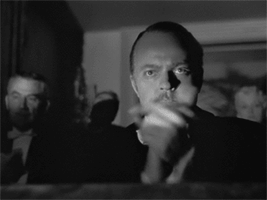For example, at the very beginning you find two drunkards that want to take you to some wizard. Let us say you want to roleplay a good character and you decide to not resist for obvious reasons. Well, your other character who is a rascal might interfere and protest. The problem becomes evident when this moral dilemma is resolved by a dice roll and you are forced to kill innocent people, something a good character would never do. The mark of good design is to have the freedom of choice.
I would argue that a more essential mark is having consequences; if a lot of choices lead to the same conclusion, they are meaningless, ergo outcomes are more important. And a big part of consequences is dealing with them.
Is easy to see the problem with someone who murders a quest giver and afterwards complains about not being able to do the quest, he wants to have his cake and eat it too. And similarly, wanting a heartless character without having to deal with any of the possible consequences of that, while pretending that some meaningless leadership debuff is somehow a fair tradeoff, is definitely not "roleplaying done right", is a system that makes the entire choice pointless.
If you concern is making the "good" character behave consistently then, good news, there is nothing forcing him to actually participate in the fight, you can left the two drunkards to the rascal, hell, if you are roleplaying as a self-righteous ass you can take your larping to the next level and have that character attack the other one. The entire scenario can be handed in a couple of ways because the choices don't stop with the dice roll. The only thing the game is "forcing" on you is making a violent character (personality that you picked) act violently (if you lose a dice roll or a minigame that is heavily affected by the social stat). That's less "having the freedom of choice taken away from the player" and more, dealing with the obvious consequences of your choices.


















![Have Many Potato [2013] Codex 2013](/forums/smiles/campaign_tags/campaign_potato2013.png)
![The Year of Incline [2014] Codex 2014](/forums/smiles/campaign_tags/campaign_incline2014.png)








